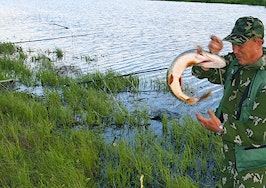- Your success on Facebook is dependent upon your ability to truly know your ideal client.
- To move a like into a lead, you've got to have a powerful call-to-action.
- Build a community on Facebook, and treat it well.
Perhaps the big question for the universe right now among real estate agents is: How do I get real estate leads from Facebook?
Of course, if you are using Facebook with any regularity, you are likely to get a couple of clients just from normal interaction on your personal profile.
If you aren’t at least getting that, you are missing something, somewhere. And no, I’m not talking about pushing out your listings. I mean mistakes like the following:
- Failing to say that you are an agent in your About section or not mentioning your team and firm names
- Having your profile locked down in a way that people can’t find your email address or phone number
- Never posting about your day-to-day activities naturally (which should include some work-related aspects)
- Creating status updates that are boring, negative or self-focused
Check these things out. See what you can do to change any of these errors.
The connections you make via your Facebook personal profile are typically attributed to sphere or referral connections. They aren’t the lead generation I’m talking about. That’s just prospecting your sphere connections.
If you want to grow your business, you need to scale it, which means generating leads from people who don’t know you, bringing them into your sphere and building a relationship with them.
If you want to rake in the real estate leads on Facebook, here’s what you need to do:
1. Make a Facebook business page
Yes, you need a Facebook business page, not just a personal Facebook profile. If you want to grow and scale your business, this is an absolute must.
So, create your page. A simple one will do. You can work on it a little bit each day or week by adding features, adding captures, etc. Just get your page created and published. Don’t invite anyone to like the page other than yourself at this point.
2. Start posting on your Facebook business page
Start posting before you troll for page likes (actually, don’t troll for page likes, ever). Don’t jump ahead of yourself. Why on earth would people want to like your page if it’s blank?
Post for several days or backdate some of your posts. Plan on being active and engaging on your page every single day. Multiple times a day.
Want some down time? Schedule your posts. Just be sure to watch for interactions, and then interact. Not engaging in interactions on Facebook is probably one of the biggest mistakes I see real estate agents make.
Do you want even more time? Create a content calendar for your real estate business. Plan the next few months, and then follow your plan. You’ll free up head space and time.
3. Get people to your Facebook business page
I’m not talking about inviting everyone on your friend list. Don’t do that. You’ll regret it. The last thing you want to do is invite your colleagues to your Facebook business page.
Why? Well, the reason has nothing to do with competition or them seeing what you are doing. If you are going to invite people to your page, make sure they are your target future client, not someone who isn’t likely to use your services. Be selective.
It has everything to do with the fact that they are not your ideal future client. It will mess with your stats and forecasting if you’ve got a page full of likes that have zero need for your business services.
Your page will not be a success. You might have some page likes, but you won’t have likes that turn into leads. That is what you want — appointments.
You need to run a focused page-like campaign that’s targeted to your ideal future client. You need to reach out and connect with people who do not know you.
This is how you grow a bigger business, and how you eliminate the feast versus famine lifestyle. Scale your business for a continual dripping of leads that turn into clients.
4. Create a call to action to drive them from your Facebook page into your email database
What can you offer that they want or need? Something they can’t seem to find somewhere else. Or, maybe something they can find elsewhere but haven’t been offered. Do you have a unique way to present it?
Success with using Facebook as a lead generation channel hinges on your main site. What kind of content do you have on there that you can channel to your Facebook followers? Always remember, a strong call to action is imperative.
The sooner you can do it in the cycle, the better. Ideally, a lead will like your page and subscribe to your email list in the same few moments. It’s much easier to grab them initially than to try and use Facebook to get them later, which you should be doing anyway.
Create an ebook, a checklist or a template targeted toward your ideal future client. What are their needs? What are their wants? Answer their questions. Give them a solution to their problem.
5. Advertise that call to action using Power Editor
Power Editor is Facebook’s ad creation tool — on steroids. You don’t want just to click on “boost post” or use “ads manager.” You want to head over to Power Editor and create ads directly within that tool.
It’s not an easy tool to use; it’s not intuitive, but it’s worth it. You’ve got more power there. You can more clearly define your audience. You can more powerfully control where your ad goes. The tracking on it is phenomenal.
You’ll increase your conversions and lower your conversion costs using Power Editor. And here’s a tip: it costs nearly double to use the “boost post” button than it does to run your ads through Power Editor. Up to $20 might not seem like much to push your content out, but it’s outrageous when you can do it for half that amount.
So now that you have a great overview on how to rake in the leads on Facebook, what are you waiting for?
Not sure where to start? Here’s a Facebook Page Setup Checklist I created for you. Click here to download and get your page setup.
Christina Ethridge is the founder of LeadsAndLeverage.com.









